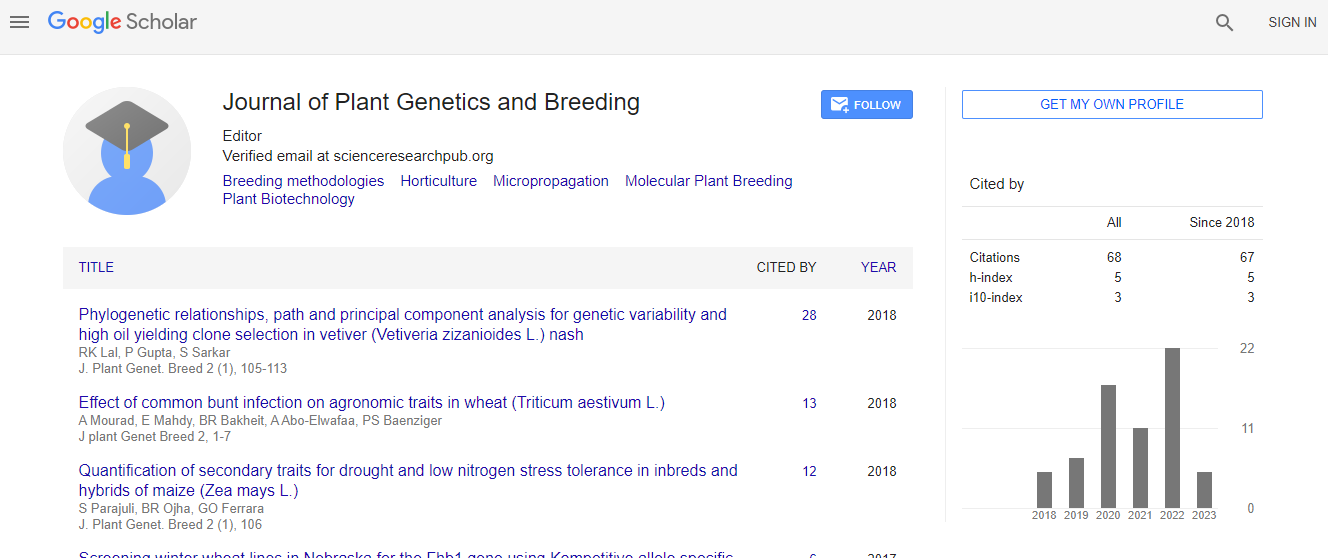South African Biotechnology of Plants: Micropropagation Research Attempts, Prospects and Difficulties
*Corresponding Author: Daolin FU, National Key Laboratory of Wheat Improvement, College of Agronomy, Shandong Agricultural University, China, Email: lin.dao@fufa0.comReceived Date: May 02, 2023 / Published Date: May 30, 2023
Citation: Daolin FU (2023) South African Biotechnology of Plants: Micropropagation Research Attempts, Prospects and Difficulties. J Plant Genet Breed 7: 148.DOI: 10.4172/jpgb.1000148
Copyright: © 2023 Daolin FU. This is an open-access article distributed under the terms of the Creative Commons Attribution License, which permits unrestricted use, distribution, and reproduction in any medium, provided the original author and source are credited.
Abstract
Plant biotechnology research is crucial to the global production and preservation of plant-based resources. South Africa has a real chance to develop plant biotechnology sectors that are effective and competitive because the country has a wide range of floral resources. A policy framework supporting biotechnology research exists in South Africa in the form of a National Biotechnology Strategy. This will undoubtedly be made possible by the government's willingness to allocate significant resources and the presence of competitive research infrastructure. South Africa's plant biotechnology research can possibly make more critical commitments to the public economy. In this survey, while featuring the achievement, the examination tries, prospects, and difficulties blocking the commonsense use of micropropagation research yields are talked about.
Among other things, a clear and easy-to-understand regulatory framework that makes consistent decisions is necessary for the use of genome editing. While some nations, such as the United States, have made the decision to deregulate specific transgene-free genome edited products that can be produced through conventional breeding and are not regarded as plant pests, others still face difficulties incorporating new technologies into their regulatory framework. In this section, experts in plant biotechnology from around the world are surveyed to determine which strategy nations should agree upon to accommodate new breeding technologies and derived products, both now and in the future. One important finding is that dual-product/process systems or product-based models are thought to be suitable frameworks for controlling the results of genome editing. We investigate how experts' worldviews affect these issues because it is anticipated that regulation of novel biotechnology products will have an effect on research and trade. According to the findings, worldviews regarding trade and agricultural innovation are unaffected by region. On the other hand, experts' worldviews had no effect on how novel biotechnology products should be regulated.

 Spanish
Spanish  Chinese
Chinese  Russian
Russian  German
German  French
French  Japanese
Japanese  Portuguese
Portuguese  Hindi
Hindi 